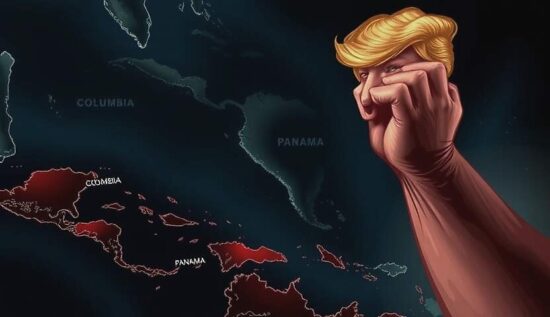US Diplomacy in Latin America: A New Era of Competition
Recent developments in US-Latin American relations have sparked a new era of competition, with the Trump administration employing a strategy of “divide and conquer” to achieve its goals. The visit of US Secretary of State Marco Rubio to Panama, where he met with President José Raúl Mulino, marked a significant turning point in the region’s diplomatic landscape.
Rubio’s announcement that the US would not tolerate China’s growing influence and control over the Panama Canal was met with a swift response from the Panamanian government, which has since opted out of further cooperation with China under the Belt and Road Initiative. The US has secured a significant diplomatic victory, following a similar success in Colombia, which was coerced into complying with US demands after the threat of tariffs.
The US has also taken a hardline stance on Mexico, with President Claudia Sheinbaum rejecting the US’s “remain in Mexico” program for asylum seekers and criticizing the US’s deportation policies. The US has responded by imposing a 25% tariff on Mexican goods, a move that has been met with defiance from the Mexican government.
The situation has led to a rift in the US’s relations with Mexico, with the Mexican government announcing plans to take retaliatory measures, including the imposition of tariffs and other sanctions. The US’s actions have also led to a growing sense of unease among Latin American leaders, with some calling for a united front against the US’s aggressive diplomatic tactics.
The situation has also led to a re-evaluation of the US’s military presence in the region, with some arguing that the US’s military bases in Honduras and other countries are no longer justified in the face of the US’s aggressive diplomatic posture.
The US’s actions in Latin America have also led to a growing sense of unease among the region’s leaders, with some calling for a united front against the US’s aggressive diplomatic tactics. The situation has also led to a re-evaluation of the US’s military presence in the region, with some arguing that the US’s military bases in Honduras and other countries are no longer justified in the face of the US’s aggressive diplomatic posture.
As the situation continues to unfold, it remains to be seen how the region will respond to the US’s aggressive diplomatic tactics. One thing is certain, however, the US’s actions in Latin America have marked a significant turning point in the region’s diplomatic landscape and the consequences of the US’s actions will be far-reaching and long-lasting.





